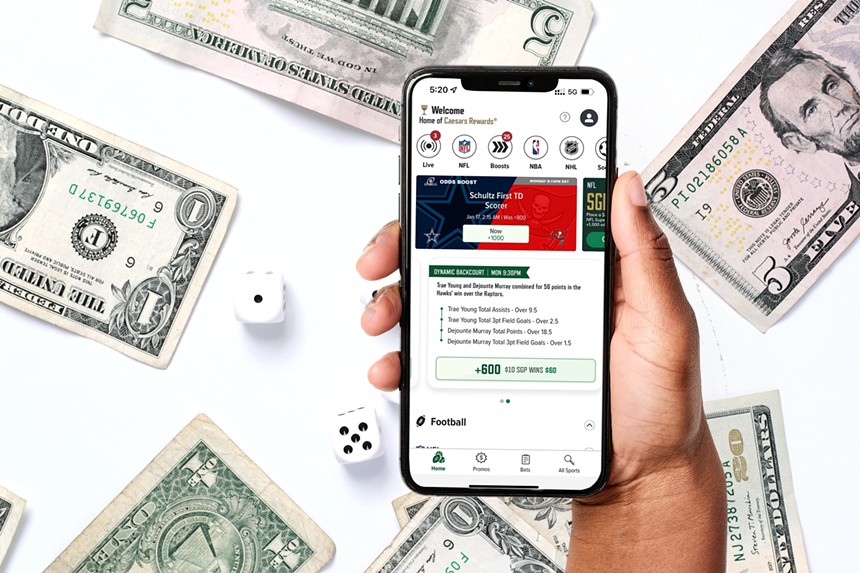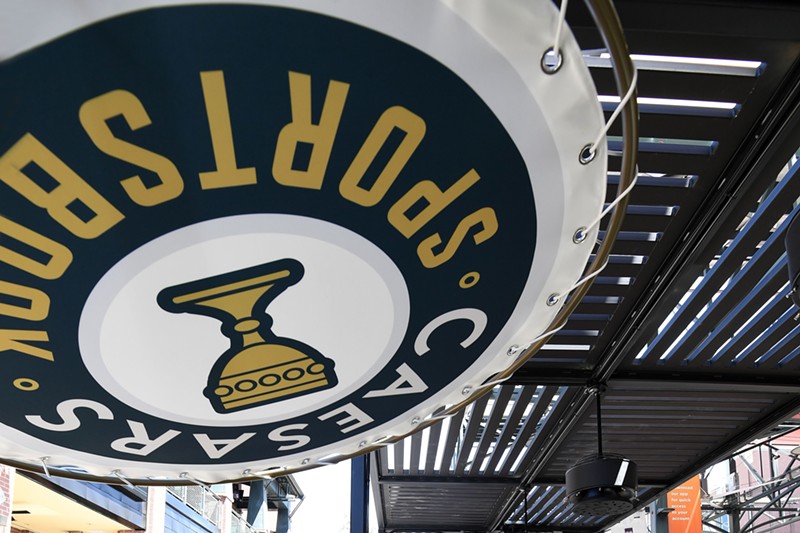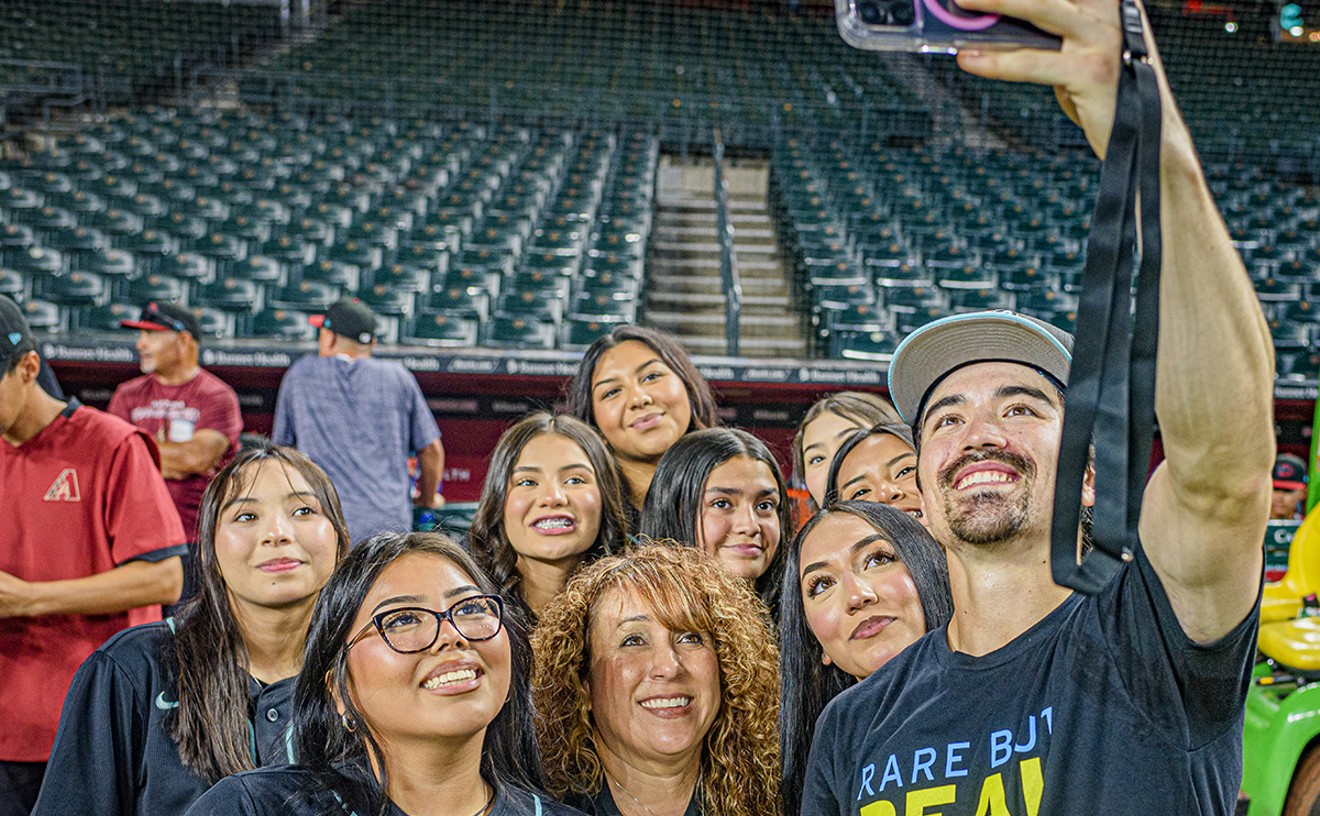In March, Arizona’s $760 million sports betting handle, which is the term for the total amount of money wagered by bettors, was up 17.8% year over year and blew past the previous record of $713.6 million set in November 2023. It was the state’s third time clearing $700 million in the past five months. Including March's total, all-time wagering was nearly $16.5 billion in Arizona.
There are obvious reasons why March would be so busy, including travel to the state for spring training baseball, the culture of betting around the NCAA basketball tournaments and overall spring tourism in the state, said SportsHandle betting expert Chris Altruda. Arizona also frequently hosts marquee sports events, such as the Super Bowl or NCAA men’s Final Four, which was played at State Farm Stadium in Glendale in April. But those attractions aren’t the only things that drive betting in the state, Altruda said.
The primary driver of sports betting growth in Arizona, he said, is the state's friendly tax environment for operators. Arizona has an 8% tax rate for retail betting locations, such as the newly opened DraftKings Sportsbook at TPC Scottsdale or Caesars Sportsbook at Chase Field. Arizona’s mobile tax rate is 10% for betting apps, such as FanDuel or ESPN Bet. Further, the state allows operators to deduct promotional spending on mobile app bonus bets — essentially free bets users can make with house money — from its gross revenue, lowering the portion of revenue that is taxable.
“When you can deduct that, it makes for a more aggressive landscape,” Altruda said. “You can do more, you can retain more, you attract more, and that’s how you get handle higher.”
Other states, such as Illinois, can have a sports betting tax rate as high as 20%. In Virginia, the state government recently limited the ability to deduct promotional spending from gross revenue to a company’s first 12 months of operation in the state. Arizona has no such limitations.
As a result, Altruda said, industry leader FanDuel spent $6.6 million in Arizona to promote its app in March alone and received $265 million in wagers. Online is where Arizonans bet: Mobile wagers represented 99% of Arizona’s handle in March.

A whopping 99% of sports bets made in Arizona are wagered through apps, making it easier for bettors to develop a gambling problem.
Focal Foto/Flickr/CC BY-NC 2.0
The risk of addiction
Mobile betting is a recent phenomenon — starting in 2018 when U.S. Supreme Court struck down the Professional and Amateur Sports Protection Act and gaining momentum when Arizona legalized sports gambling three years ago — and it has sparked an advertising and content boom. Sports fans are inundated with promotions and advertisements for mobile operators within game broadcasts and their favorite television shows, podcasts and news sites.Today, mobile operators primarily push users toward same-game parlay bets on player statistics and teams’ head-to-head performance, as opposed to simply picking the winner or point spread. Live in-game betting also is growing in popularity. These categories provide longer odds for the user, meaning a greater chance the operator keeps bettors’ money.
These bets turn sports gambling into an extension of watching sports, said Pam Koopman, the executive director of the Arizona Council on Compulsive Gambling. The council is a nonprofit conduit between problem gamblers and those struggling with addiction to local and national resources, including mentorship, counseling or inpatient treatment, as well as self-exclusion, the state’s primary method of care for problem gamblers. Self-exclusion allows individuals to voluntarily ban themselves from casinos or sportsbooks.
Increasingly, Koopman said, the tie between sports fandom and sports betting has led more young men to reach out to her organization.
“For many of those gamblers, sports betting is viewed almost as a skill-based entertainment, as opposed to actual gambling,” Koopman explained. “I think that there's definitely a perception with these younger gamblers that sports betting itself is not really gambling, and therefore the consequences that occur for people that cross the line into compulsive gambling or problem gambling goes unheeded.”
Because sports betting is legal and prevalent throughout the sports industry, it does not carry the same stigma associated with other forms of addiction, Koopman said. Some sports fans see betting as a way to put their knowledge or passion to the test rather than a financial risk that has the chance to develop into an obsession.
Winning gives mobile bettors instant gratification, a euphoric feeling that Koopman said comes even quicker than from a slot machine. Bettors become addicted when they prioritize that winning feeling over the financial effects of losing.
“Addiction is not addicted to winning or losing,” Koopman said. “It's the addiction to playing with little regard for the outcome or the consequence.”

Sportsbooks such as BetMGM in Glendale have become a fixture of the sports landscape in Arizona and aren't going away.
BetMGM Sportsbook
Not going away
Koopman’s council works alongside the Arizona Department of Problem Gaming, which is funded with tax dollars through the state’s 2002 gaming compact. The department trains gambling addiction counselors and manages the self-exclusion program. The council foresaw significant sports gambling activity from the moment legalization efforts began, and Koopman does not expect a slowdown soon.“The horse is out of the barn on this one,” Koopman said. “Sports betting exists.”
Because Arizona is a major sports market, a common tourism destination and features a favorable tax environment for mobile sports betting operators, future betting handles likely will continue to grow. “There’s a market for this,” Altruda said, “and as long as the regulations don’t change and the tax rate stays low, you’re going to continue to see this type of business.” He thinks that when the NFL season kicks off in September, Arizona could see another record-breaking handle.
If anything, a corresponding rise in gambling addiction hasn’t fully arrived. Koopman said the council often sees a lag from when gambling becomes a problem until an individual may reach out for treatment. Given Arizona continues to break records, the expectation is the addiction problem will grow in turn.
“It’s real people,” Koopman said. “Real people, real human beings, with real issues and problems, and they’re probably going to want to deny it first, and then if they do become completely addicted to gambling, they're not even going to have the ability to deny it.
“All they're just going to do is keep trying to sustain the level of their activity," she added, "which probably is going to get even more intense.”











